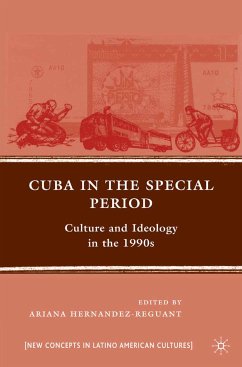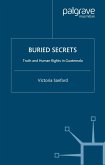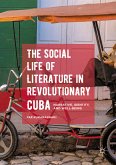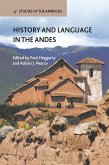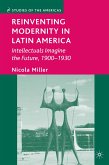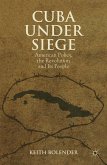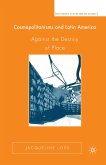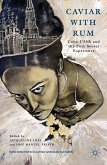Dieser Download kann aus rechtlichen Gründen nur mit Rechnungsadresse in A, B, BG, CY, CZ, D, DK, EW, E, FIN, F, GR, HR, H, IRL, I, LT, L, LR, M, NL, PL, P, R, S, SLO, SK ausgeliefert werden.
Hinweis: Dieser Artikel kann nur an eine deutsche Lieferadresse ausgeliefert werden.
"Those readers, who, like me, lived in Cuba during the austere Special Period, will find echoes of their own experiences.However, those who have never even visited the island will also discover a great deal in the rich details of these essays. This specificity is the book's strength - in providing rich detail." - Journal of Cuban Studies
"A necessary and welcome reflection on the Special Period in Cuba as an instance of late socialism . . . these insightful essays shed light on the changes that Cuba's opening to global markets of mass culture brought to the cultural field . . . This important collection is a valuable contribution to a long overdue and necessary dialogue." - New West Indian Guide
"This is a first rate collection comprised of work by respected specialists who develop a collective view of a knotty issue: how Cuban socialism survived, or didn't, in the period attending the dissolution of the Soviet Union. While the express ambition of the book is to refine debates about globalization, to read Hernandez's introduction, the fate of late socialism, and other broad political and economic patterns of observation, the practice of focusing on particular cultural phenomena makes good on the ambition precisely because macro questions cede to the micro-histories of art's negotiation with particular constraints and opportunities. A strong contribution to the field." - Doris Sommer, Ira and Jewell Williams Professor of Romance Languages and Literatures, Harvard University
"This book offers a definitive backward-glance at a contradictory threshold in Cuban history, a moment that has been celebrated and over-exposed at the level of consumption but relatively under-analyzed. Hernandez-Reguant's unprecedented collection gathers a host of thinkers who dwell critically in the culture of the Special Period and think through its contradictions with subtlety and rigor. Hernandez-Reguant and her contributors illuminate what was at stake - politically, culturally, and socially - in the Special Period, and remind us why it is important to understand both its exceptionality and its lasting effects." - Ana Maria Dopico, Associate Professor of Comparative Literature and Spanish and Portuguese, New York University

